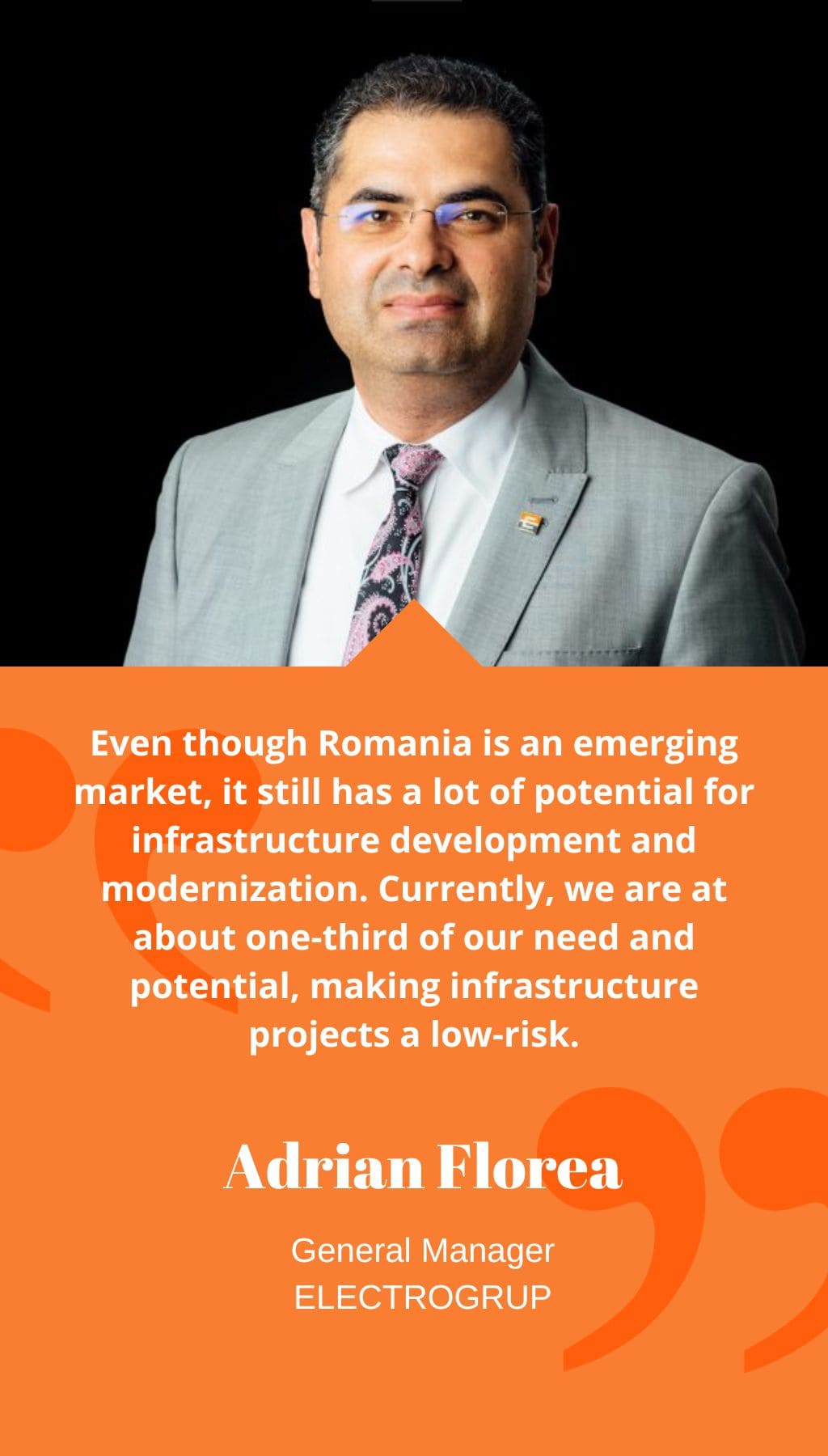
- Romania | 29 February 2019

Can you please provide a brief introduction to Electrogrup’s history and current operations?
Electrogrup was established in 1997 as an energy consultancy firm but has since evolved into a much more complex organization. As we discovered that the tools and workflow we used in energy projects were similar to those used in building telecom infrastructure, we naturally shifted our focus to this market. Over time, we have diversified our services and explored new markets and opportunities. In 2007, our shareholders decided to separate the Group’s business lines into different companies, but in 2017, we brought them all back under the E-INFRA Holding umbrella. Since we began, we have built over 10,000 km of fiber optics networks, hundreds of electrical and telecom substations, micro-hydro energy stations, wind and solar farms, and have recently ventured into the smart city market. Our diversified business lines have helped us navigate market and investment fluctuations while expanding our services to clients outside Romania.
What are the primary objectives and challenges when building energy infrastructure in Romania?
Infrastructure development is a priority for Romania, as it is essential for any country’s economic growth. We are committed to supporting the modernization process and have been expanding our expertise as general contractors for larger industrial projects in various fields, including highway and national road projects. Energy, telecommunications, and smart grids are all part of the essential infrastructure we need, and we have great expertise in these fields. Our focus is on optimizing the efficiency of energy distribution, which requires automation and interconnectivity. By implementing a SCADA system, we can detect and respond to issues in a fraction of a second, leading to lower running costs, an interconnected power grid at a European level, and a safer and more resilient energy system for consumers.
How has Electrogrup entered the Smart City market, and what are the next steps in this direction for Romania?
Smart Cities are part of our present and future, and we have recently opened a Smart City division. In Romania, local authorities have micro ideas like traffic control, smart census and population mobility motorization, smart cameras, and so on, but the main challenge in developing smart cities is building an efficient ICT infrastructure that can accommodate customization and integration of services at different points in time, depending on budgets. As vendors, we have a responsibility to educate consumers about technology and services, in this case, local authorities. Our approach is to provide consultation services that allow us to offer them the best strategies. For small municipalities with budget limitations, solutions like Netcity, our company that owns and operates the underground fiber optics infrastructure in Bucharest, developed through a PPP project, can be used to provide smart services. The infrastructure is open to city halls, and service providers can develop projects that use it.
Is infrastructure in Romania a smart investment?
Even though Romania is an emerging market, it still has a lot of potential for infrastructure development and modernization. Currently, we are at about one-third of our need and potential, making infrastructure projects a low-risk and fast way to generate revenue. As a company, we plan to expand our services further in the Bucharest area and the South of Romania, with a focus on becoming infrastructure owners and builders on any type of infrastructure. In energy, our goal is to solidify our position as leaders in modernizing the energy system infrastructure in Romania.














